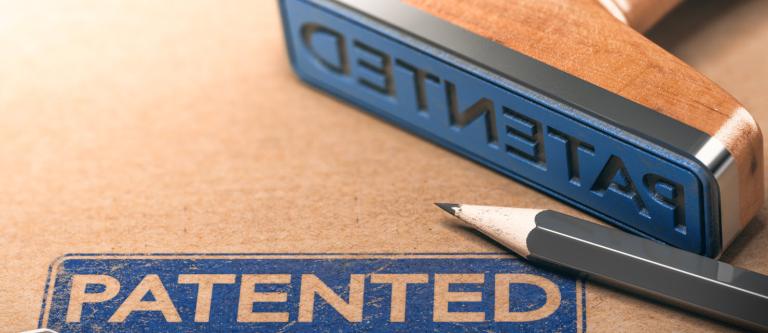
1.- Hechos.
La sociedad sueca FLIR System AB (en adelante, “FLIR”) instó la protección de varias invenciones a través de solicitudes de patente internacionales, completadas posteriormente con solicitudes de patente europea, estadounidense y china, así como de patentes estadounidenses expedidas a FLIR sobre la base de estas últimas solicitudes.
La sociedad sueca IRnova AB (en adelante, “IRnova”), que en el pasado mantuvo relaciones comerciales con FLIR, demandó a esta última, sosteniendo que esas invenciones habían sido realizadas por uno de los empleados de IRnova y reivindicando que: (i) dicho empleado debía ser considerado inventor o, al menos, coinventor de las invenciones; (ii) IRnova, en su condición de empleador, debía ser considerada la titular de las referidas invenciones, las cuales FLIR había presentado en nombre propio sin tener derecho a hacerlo.
En fase de recurso, el Tribunal de Apelación en Materia de Patentes, Marcas y Mercantil sueco se declaró competente para conocer del recurso de IRnova en lo relativo a las invenciones objeto de las solicitudes de patentes europeas, e incompetente para conocer respecto de las solicitudes de patentes chinas y estadounidenses, basando su falta de competencia en la regla de competencia exclusiva establecida en el artículo 24, punto 4 del Reglamento (UE) 1215/2012 (en adelante, “Reglamento Bruselas I bis”) que se reproduce a continuación: «Son exclusivamente competentes, sin consideración del domicilio de las partes, los órganos jurisdiccionales de los Estados miembros que se indican a continuación: […] 4) en materia de inscripciones o validez de patentes, marcas, diseños o dibujos y modelos y demás derechos análogos sometidos a depósito o registro, independientemente de que la cuestión se haya suscitado por vía de acción o por vía de excepción, los órganos jurisdiccionales del Estado en que se haya solicitado, efectuado o tenido por efectuado el depósito o registro en virtud de lo dispuesto en algún instrumento de la Unión o en algún convenio internacional.»
IRnova interpuso recurso de apelación contra la resolución de incompetencia y el órgano remitente (el Svea hovrätt – Tribunal de Apelación con sede en Estocolmo) decidió suspender el procedimiento y plantear al Tribunal de Justicia la cuestión prejudicial siguiente: «¿Está comprendido en el ámbito de la competencia exclusiva prevista en el artículo 24, punto 4, del Reglamento Bruselas I bis un recurso, basado en la presunta condición de inventor o de coinventor, cuyo fin es que se declare la existencia del derecho legítimo sobre una invención objeto de solicitudes de patente nacionales y de patentes registradas en un país tercero?».
2.- Pronunciamientos.
La respuesta del Tribunal de Justicia es clara. La competencia exclusiva del artículo 24, punto 4 del Reglamento Bruselas I bis no contempla una situación en la que las patentes sean presentadas o expedidas fuera de Estados miembros, como Estados Unidos y China, por lo que queda fuera de su ámbito de aplicación.
El Tribunal de Justicia abunda en la no aplicabilidad del artículo 24.4 basándose también en el hecho de que el asunto principal no es un litigio «en materia de inscripciones o validez de patentes», de modo que no es necesario reservarlo a los órganos judiciales que tienen una proximidad material y jurídica con el registro.
En concreto, la cuestión controvertida del litigio versa sobre si debe considerarse que FLIR es titular del derecho sobre las invenciones, lo cual queda fuera de lo que cabría interpretar como un litigio en materia de inscripciones o validez de patentes por los siguientes motivos:
- La identificación del inventor es una cuestión previa y, por tanto, distinta de la solicitud de patente o expedición de esta. Además, aun cuando ello implique la necesidad de realizar un examen de las reivindicaciones a efectos de determinar el grado de contribución de las partes, tal examen no se referiría al carácter patentable.
- Tampoco se refiere a la validez de la presentación puesto que el litigio tiene por objeto determinar el derecho sobre las invenciones en sí mismas. En este sentido, aclara el Tribunal de Justicia que el hecho de que la inexistencia de un derecho sobre la invención pueda constituir una causa de nulidad carece de pertinencia en lo que respecto a la competencia para conocer de litigios relativos a la condición de inventor.
3.- Comentario.
El fallo de la Sentencia es congruente con la jurisprudencia del propio Tribunal de Justicia, que viene señalando que la cuestión de determinar a qué patrimonio personal pertenece un título de propiedad intelectual no presenta, con carácter general, un vínculo de proximidad material o jurídica con el lugar de registro de dicho título. Esta Sentencia aporta mayor certeza sobre el caso concreto de un litigio en el que el asunto principal trata sobre la determinación de la condición de inventor de una patente presentada y/o expedida en países terceros, confirmando la no aplicabilidad de la regla de competencia exclusiva del artículo 24.4 Reglamento Bruselas I bis.
Recordemos que la aplicación de dicha regla de competencia exclusiva priva a las partes de elegir un fuero que de otro modo sería suyo, pudiendo incluso someterlas a una jurisdicción distinta a la de su domicilio, por lo que se trata de una regla específica de competencia que debe interpretarse de manera restrictiva.
Agustín ALGUACIL
Nota: Estimado lector este comentario jurisprudencial procede del Anuario Elzaburu. Usted podrá acceder al resto de comentarios del Anuario que se hallan publicados en el portal de Elzaburu (https://elzaburu.com/) para lo cual solo tendrá que incluir en el apartado Buscar 🔍 del portal el término Anuario Elzaburu para así poder acceder a los contenidos ya publicados.
VERSIÓN EN INGLÉS
Jurisdiction over disputes concerning the determination of inventor status where patents are from outside the European Union. Judgment of the Court of Justice of 8 September 2022, IRnova (C-399/21).
1.- Background.
The Swedish company FLIR System AB (hereinafter "FLIR") sought protection for several inventions by means of international patent applications, subsequently supplemented by European, US and Chinese patent applications, as well as US patents granted to FLIR on the basis of those latter applications.
The Swedish company IRnova AB (hereinafter "IRnova"), which had in the past had business relations with FLIR, brought an action against FLIR, arguing that those inventions had been made by one of IRnova's employees and claiming that: (i) that employee should be considered the inventor or at least a co-inventor of the inventions; (ii) IRnova, as the employer, should be considered the owner of those inventions, which FLIR had filed in its own name without being entitled to do so.
The Swedish Patent and Market Court declared that it had jurisdiction to hear IRnova's action in relation to the inventions that were the subject of the European patent applications, and that it did not have jurisdiction to hear the action in relation to the Chinese and US patent applications, basing its lack of jurisdiction on the rule on exclusive jurisdiction set out in Article 24(4) of Regulation (EU) 1215/2012 (hereinafter "Brussels Ia Regulation") which is reproduced below: "The following courts of a Member State shall have exclusive jurisdiction, regardless of the domicile of the parties: [...] (4) in proceedings concerned with the registration or validity of patents, trademarks, designs, or other similar rights required to be deposited or registered, irrespective of whether the issue is raised by way of an action or as a defence, the courts of the Member State in which the deposit or registration has been applied for, has taken place or is under the terms of an instrument of the Union or an international convention deemed to have taken place."
IRnova brought an appeal against the decision regarding lack of jurisdiction and the referring court (the Svea hovrätt – the Court of Appeal in Stockholm) decided to stay the proceedings and to refer the following question to the Court of Justice for a preliminary ruling: "Does an action seeking a declaration of better entitlement, based on a claim of inventorship or co-inventorship, to an invention under national patent applications and patents registered in a non-Member State, fall within the exclusive jurisdiction under Article 24(4) of the Brussels Ia Regulation?".
2.- Findings.
The Court of Justice's answer is clear. The exclusive jurisdiction under Article 24(4) of the Brussels Ia Regulation does not cover a situation where patents are deposited or granted outside Member States, such as in the United States and China, and therefore such a situation falls outside its scope.
The Court of Justice also finds that Article 24(4) does not apply based on the fact that the main action does not constitute proceedings "concerned with the registration or validity of patents", and therefore it is not necessary to ensure that jurisdiction rests with courts closely linked in fact and law to the register.
In particular, the disputed issue in the proceedings concerns whether FLIR is to be regarded as the proprietor of the right to the inventions, which falls outside what could be construed as a dispute concerning the registration or validity of patents for the following reasons:
- The identification of the inventor is a preliminary matter and, therefore, separate from the filing of a patent application or the grant of that patent. Moreover, even if it implies the need to conduct an examination of the claims for the purpose of determining the degree of contribution of the parties, such an examination would not relate to the patentability of the invention.
- It does not concern the validity of the filing either, given that the purpose of the proceedings is to determine the right to the inventions themselves. In this regard, the Court of Justice makes it clear that the fact that the absence of a right to the invention may constitute a ground for invalidity is irrelevant as regards the jurisdiction to hear disputes relating to the status of inventor.
3.- Remarks.
The judgment is consistent with the Court of Justice’s own case-law, which has held that the question of determining the ownership of an intellectual property right is not, as a general rule, closely linked in fact and law to the place where that right has been registered. This judgment provides greater certainty on the specific case of a dispute in which the main proceedings concern the determination of the inventor of a patent filed and/or granted in third countries, confirming that the exclusive jurisdiction rule of Article 24.4 of the Brussels Ia Regulation does not apply.
It should be recalled that the application of that exclusive jurisdiction rule deprives the parties of the choice of forum which would otherwise be theirs and may even subject them to a jurisdiction other than that of their domicile, and therefore it is a specific rule on jurisdiction that must be interpreted restrictively.
Agustín ALGUACIL
ElDerecho.com no comparte necesariamente ni se responsabiliza de las opiniones expresadas por los autores o colaboradores de esta publicación









